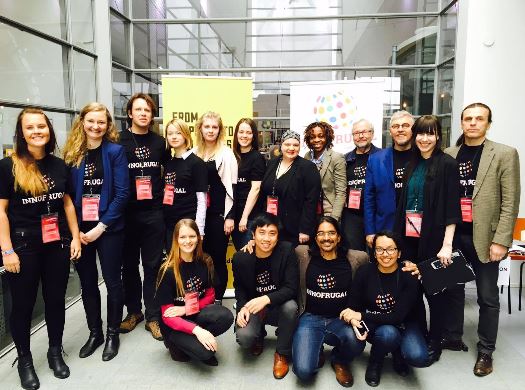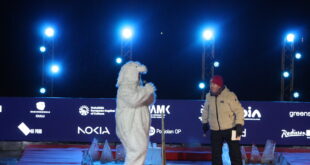The InnoFrugal Conference acts as a forum for best practices, policy analysis, sharing the latest thinking and highlighting success in frugal innovation. The second annual InnoFrugal event was held last week at Heureka, the Finnish Science Centre in Vantaa, a few minutes north of Helsinki.
Co-organised by the non-profit Nordic Frugal Innovation Society and the Ministry For Foreign affairs Finland, and supported by various partners including TEKES Business Impact, the Indian Embassy, and the Finnish Invention Society, the event brought together actors and innovators from across technology, education, energy, environment, food, healthcare, and water.
The speakers and audience reflected incredible cultural diversity, with many nationalities represented. The Indian continent was well represented and imparted many key observations from their market.
Local Finnish organizations were also represented, such as Aalto University via their Global Impact Program, Finnish local project ‘From Waste To Taste’ and the startup ResQ.
Also present at InnoFrugal were Nanomaji a portable water treatment start-up, based on a filtration medium produced by Finnish giant Ahlstrom. The goal is to design a solution that would be efficient, affordable and fit in with the local life. This would replace the current practice of boiling the drinking water with charcoal, which is harmful for both the human health and the environment.
“Businesses need to learn to respond to limitations in resources; whether financial, material or institutional, and turn these constraints into innovative ideas and practical, affordable & sustainable solutions.” commented Venkata Gandikota, lead organizer for the event.
Cheap does not equal bad
Co-Author of Frugal Innovation: How to Do More With Less Jaideep Prabhu gave several real-life case examples from India where the culture has always had a frugal mindset and is good at lowering costs. He highlighted ‘Jugaad Innovation’ and its six principles:
- Do more with less
- Keep it simple
- Think and act flexibly
- Seek opportunity in adversity
- Include the marginal people
- Follow your heart
Steve Simplay from Tata Technologies highlighted that frugal engineering is coming to western markets. “What is the minimum that the customer would accept” was a constant driving question during their development of the $2500 Tata car. This re-thinking produced twenty-eight new patents in the process.
Bring consumption and production closer
Arindam Som, highlighted Unilever’s local in-country teams frugal innovation cases where dish-washing paste was created to solve cleaning challenges and even that was further innovated back to a powder form because of local production machine constraints in some developing markets. Another case piloted a dispensing machine for cleaning liquids where customers brought their own (re-useable) bottles to fill. These cases led to reductions in raw material use, transportation, less packaging and lower prices for consumers.
It is also humbling to remember that much of the world survives on a daily basis. Subsequently, new business models have been created based on the fact that advance monthly payments are not possible for many people, but daily equivalent payments are. It’s all about deep understanding of the local markets.
Sharing and Making are pillars for the frugal economy
Frugal innovation in so called developed countries is reflected by the growing number of ‘maker spaces’. This sharing and making economy focuses on maximizing value whilst reducing resources. A great example is the global FabLabs network as introduced at the event by Tomas Diez. These spaces reflect the growing change in attitudes, culture and economy. People are becoming more active participants in their cities.
Dr. Kristian Olson based in Boston, supporting the Consortium for Affordable Medical Technologies highlighted research that followed twelve hackathon events over three years. Clear value was created in the numbers of projects started, patents filed, companies formed and investments made which reflect the success from the intensive networking and the cross-functional teams. This democratization of innovation and dual development pilots in developed and developing countries, has real value.
An enjoyable workshop hosted by Arduino Verkstad Malmo, gave insight to Arduino and the re-use of waste materials to make new applications.
Pooling resources
Many propose that we are already in the transition from traditional wasteful linear (step-by-step manufacturing) towards the circular economy where there should be no waste or pollution. Think of the inefficiencies and waste as raw materials criss-cross the world in the globalized production process and rubbish mounts from discarded products. Kalundborg Eco-industrial Park in Denmark is a step in the right direction where companies in the region collaborate to use each others’ by-products and otherwise share resources in order to reduce waste.
It is valuable to gain the insight from these cases and share the know-how between the various regions in the world but it’s not easy to copy paste solutions. There are difficulties in contextual adaptation, collaboration difficulties and affordability issues. Everyone has a different perception of ‘frugal’ and it’s often hard for westerners to understand or even get down to the price levels and expectations of others. For some economies, frugality has been a choice, not a need.
 Nordic Startup News Early Stage Startup News From The Nordics
Nordic Startup News Early Stage Startup News From The Nordics


